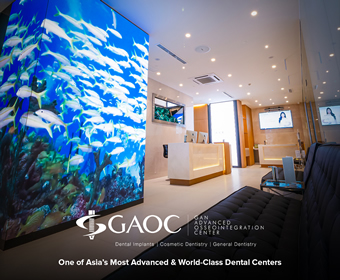The Ministry of Natural Resources and Environmental Sustainability (NRES) refers to a press release by Rimbawatch which touched on a number of aspects of Malaysia’s participation during the recent Conference of the Parties of the United Nations Framework Convention on Climate Change (UNFCCC COP29) in Baku, Azerbaijan. The Ministry wishes to offer the following clarifications to the issues raised.
FOSSIL FUEL COMPANIES PARTICIPATION
Using what it described as a “rapid analysis of Malaysia’s COP29 delegate list published by the UNFCCC”, Rimbawatch claimed that Malaysia sent 151 delegates representing business interests, including 44 “representatives of companies that have significant investments in fossil fuel expansion, or who are part of a trade body representing fossil fuel interests, therefore comprising the largest group within the corporate delegations”.
Rimbawatch’s categorisation of fossil fuel companies were as follows: Tenaga Nasional Berhad “TNB” (17), Yinson (2), Sabah Electricity Sdn Bhd “SESB” (4), Petroliam Nasional Berhad “PETRONAS” (5), Malaysia Petroleum Resources Corporation “MPRC” (1) and Sarawak Energy Berhad “SEB” (14).
It should be noted that PETRONAS has committed to net zero by 2050 by investing in new businesses in renewables and low-carbon energy. On the other hand, TNB is involved as a Malaysian-based multinational electricity company, playing a key role in our National Energy Transition Roadmap (NETR), a major component of the nation’s net zero by 2050 strategy.
Both TNB and PETRONAS (through Gentari) are also involved in major investments in renewables globally. Therefore, their categorisation as “fossil fuel lobbyists” by Rimbawatch is an oversimplification. It should also be noted that it was the sustainability divisions of these companies that attended COP29.
In general, NRES does not place any restriction on the COP participation of credible entities since Malaysia is adopting a whole-of-nation approach to the issue of climate change. All companies represented were involved in implementing government policies, especially NETR and others that contribute to national climate targets. It is important that no sector in our country is excluded from participation in or responsibility for the fight against climate change, including the private sector.
It must likewise be stressed that Malaysia has committed itself to the UAE Consensus to transition away from fossil fuels. The government this year moreover committed to a more ambitious net zero target of “by 2050”. At the same time, it holds the position that the transition must be just and equitable and not just penalise developing countries.
NRES would also like to clarify that corporate delegates do not participate in the negotiations involving members of the UN Framework Convention on Climate Change—which are nation states. Only relevant delegates from the Malaysian Government and negotiators were given badges.
During the COP29, Malaysia’s negotiating team was given a mandate that took into account both public, private and civil society positions. NRES had also closely consulted with its Climate Change Advisory and Consultative Panels (consisting of the private sector and civil society) prior to COP29 to discuss Malaysia’s position at the conference.
CSO PARTICIPATION AND OVERFLOW BADGE ISSUES
Rimbawatch also claimed that no representative of an Indigenous-led CSO, or a CSO focused on Sabah and Sarawak affairs, had been given an overflow badge to the Conference.
NRES further wishes to clarify that most of the delegates with Party Overflow Badges were participating under the Malaysia Pavilion programmes, which comprised a total of 45 sessions over two weeks. They also participated at other country pavilions with themes mainly on energy transition and tackling climate change in the energy sector.
The Secretariat assigned relevant delegates with party badges according to the prioritised negotiating themes identified and mandated by the Government.
NRES has always offered members of civil society and interested individuals badges to attend COP. Initial checks by the Secretariat have revealed that only the following CSOs made requests: the National Human Rights Commission of Malaysia (SUHAKAM), C40 Cities Climate Leadership Group, Malaysian Youth Delegation, Energy Action Partners, Global Environment Centre (GEC), Sahabat Alam Malaysia (ALAM), Youths United For Earth (YUFE), and Yayasan Hasanah.
It should also be noted that registration for overflow badges is given to credible persons or entities on a first come, first serve basis based on the due date that had been set by UNFCCC. At the same time, there was a limitation to the size of delegations from the organisers.
CONCLUSION
Therefore, issues such as the presence or alleged lack thereof of certain organisations in Malaysia’s COP29 delegation should not be regarded as an endorsement of any kind of agenda beyond the country’s well-known and widely-stated climate goals. NRES notes the points raised by Rimbawatch and other entities and will strive to continue to improve the relevant processes going into COP30 in Belem, Brazil.
MINISTRY OF NATURAL RESOURCES AND ENVIRONMENTAL
SUSTAINABILITY (NRES)
22 NOVEMBER 2024





